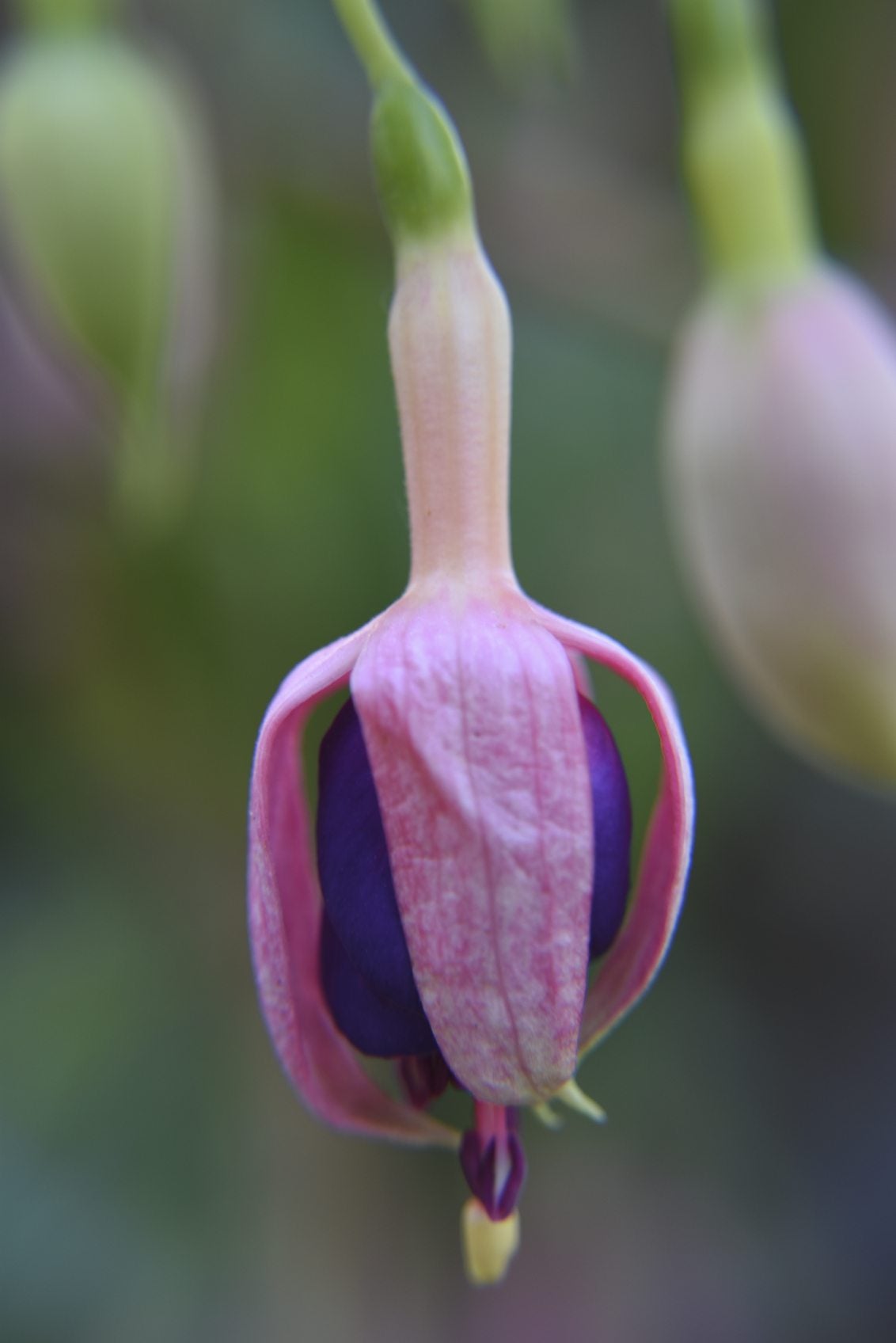Why Is Fuchsia Wilting – Tips On Caring For Wilting Fuchsia Plants


Help! My fuchsia plant is wilting! If this sounds familiar, the likely reason is an environmental problem that can probably be remedied with a few simple cultural changes. If you’re trying to figure out the reason for wilting fuchsia plants, read on for suggestions.
Reasons for Wilting Fuchsia Plants
Why is my fuchsia wilting? Fuchsias require a lot of water, especially in hanging baskets. Problems with wilting fuchsia plants may be due to lack of moisture. During the heat of the summer, potted fuchsia plants may need water twice daily, especially if the plants are exposed to sun and wind. On the other hand, wilting fuchsia plants may also be the result of too much water, especially if the roots don’t have adequate drainage. Ensure the potting soil (or garden soil for in-ground plants) is well drained. Potted fuchsias must have at least one drainage hole. While fuchsias need regular water, they should never sit in soggy soil. Watering may sound complicated, but it really isn’t. Just feel the soil before watering. If the top of the soil feels dry, water until liquid begins to trickle through the drainage hole, then allow the pot to drain. Never water if the soil feels moist, even if the leaves look wilted.
Tips for Caring for Wilted Fuchsia
If your fuchsia is properly watered and still wilts, you may be able to save the plant with a good pruning. Too much sun may be responsible when fuchsia plants are wilting. A little morning sunlight is fine, but afternoon sunlight is much too intense for these shade-loving plants. In hot climates, full shade all day is generally best. Once fuchsia plants are established, water them regularly with a diluted mixture of water-soluble fertilizer. Avoid feeding just planted fuchsias, as the fertilizer may scorch the tender roots. Watch for pests, such as aphids, spider mites, thrips or scale, all of which can cause leaves to wilt or curl. Regular application of an insecticidal soap is usually enough to keep these sap-sucking insects in check. However, never use insecticidal soap on a hot day or when the sun is directly on the leaves, as scorching may occur. Note: Chemical control should only be used as a last resort, as organic approaches are safer and more environmentally friendly.
Sign up for the Gardening Know How newsletter today and receive a free copy of our e-book "How to Grow Delicious Tomatoes".

A Credentialed Garden Writer, Mary H. Dyer was with Gardening Know How in the very beginning, publishing articles as early as 2007.